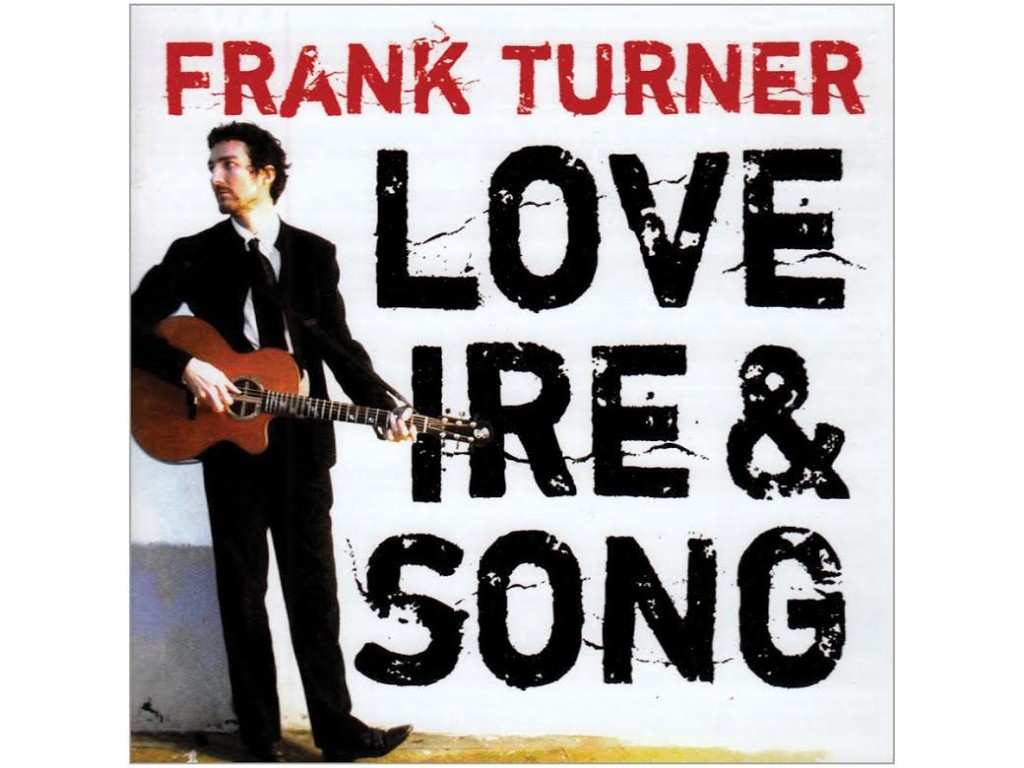
“And if only for a little while, we could insist on the impossible.”
Could I begin my final column for this newspaper in a more melodramatic fashion? The idea of the “college experience” is something I’ve thought about way too often; as a commuter for my first three years on campus, I often thought about the random excursions and bonding moments living with my fellow classmates I might be missing out on. Movies have taught me that college is a time to do one of a few things: yell “Toga!” and act like a party animal; freak out when people ask you vague questions about your future; incessantly talk about this one time at band camp.
All stereotypes aside, college is a time where, even in your supposed naivete, you can try to insist on the impossible, as Frank Turner suggests in his song, “Love Ire & Song.” I’ve written in the past in this space about media and its effect on memories, and how difficult it is to relax and enjoy a memorable moment while you’re having one — I’ve also written about what it can mean to you when you reach the end of different things in your life. In writing this column, I am going through all these things to a great extent; one of the songs most on my mind right now — “Dark Bird Is Home,” by the Tallest Man On Earth — is one from an album that I reviewed in this same issue you’re reading. The song goes the journey of a man struggling with the end of something — interpretations have been posed as a relationship ending, or a dying man giving comfort, but in the way that great music does, it allows you to impose your own feelings, whether they be joy, sadness or that inexplicable combination of the two that is so prevalent in the ending chapters of our lives.
In looking at my time in college, I can roughly divide different segments — rather, different feelings of experience, into different songs, artists and films. Jack Johnson was playing on my first date in a future relationship. Florence and the Machine’s “Shake It Out” was popular as I transitioned from high school to college. As I drove home late nights after production at the Highlander, I listened to the radio and heard many tales on “Loveline” and was introduced to the band NO, who would become one of my favorites. Late nights at the Highlander were also filled with the inevitable allure of saxophone and George Michael and “Careless Whisper,” along with Bonnie Tyler’s “Total Eclipse of the Heart,” being played for no particular reason other than it was early morning, and our tired brains liked cheesy ‘80s songs. I saw the terrible “Robocop” remake at a midnight at one of our school’s free premieres and I went to my freshman orientation the morning after seeing the last “Harry Potter” at midnight. The point in mentioning all these specificities — of which there are dozens more I could mention — is that whether we realize it or not, our experiences are intrinsically linked to the things happening around us.
Whether or not you have the “typical” college experience isn’t the point — whatever happens to you personally, and how you grow from said experience is what matters. Having songs or other media to help you along the way is one of our many ways of coping and learning about how to be human. Sharing these experiences with friends, and using media as a medium for nostalgia, reflection and learning is one of the beautiful parts of life. There’s a saying that asks whether art imitates life or vice-versa — in this case it’s both. Media has the power to deeply move us and help us understand parts of life that are beyond are our grasp — the late, great Roger Ebert called movies “an empathy machine.” I don’t think it’s too far of a reach to extend that description to songs and other forms of media. Personally, learning how to criticize media has also allowed me to explore ideas of what media means to me, and why it means certain things to me
All of these associations, combined with the potent collegiate combination of freedom and few responsibilities, allow us a plethora of new avenues to go down without having to commit to anything for too long. Media, along with our friends of course, serves as an apt companion and teacher — and memory maker. Have fun. Watch movies. Listen to songs. Play video games. Feel empowered, feel sad, feel that unexplainable combination of the two. Don’t be afraid to push boundaries. Find your passion, feel ambivalent about it, change it, go back to it — it does not matter how you get there, so long as you find that passion you want. As Turner says in another song, “I Knew Prufrock Before He Got Famous,” “Life is about love, last minutes and lost evenings, about fire in our bellies and furtive little feelings.” Remember this time fondly. Don’t be afraid to try new things — whether that’s in college or in life.
Don’t be afraid to get away from the sprawl. I’ll see you out there.








